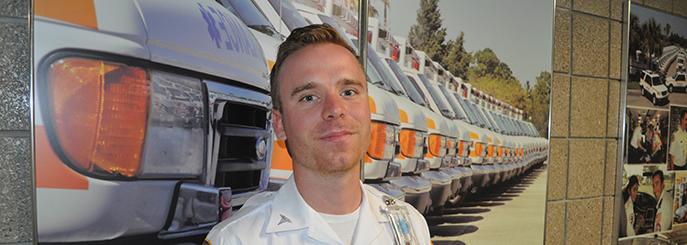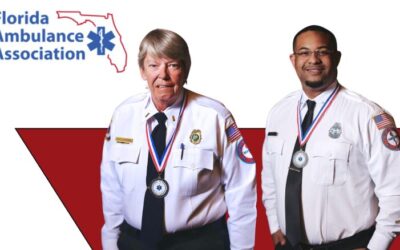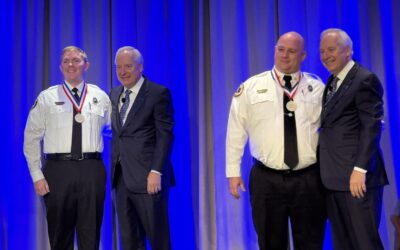When paramedics arrive at the scene of a major trauma, it’s easy to get “tunnel vision” and focus on the most obvious injuries. That’s why the critical thinking skills that Chris Collins honed during his recent Sunstar training were so valuable, he says.
“Critical thinking can make or break a good paramedic,” says Collins, who completed his training in mid-July.
You can look in textbooks to give you a cookie-cutter scenario, but every patient is different. You have to be able to think through the situation and adjust treatment appropriately.
Collins had to put those critical thinking skills to use while responding to a recent call where a woman fell down the stairs and hit her head. It was apparent that her mental status was altered, says Collins, but what was not known was how low her blood sugar had dropped.
“Her blood sugar was 42 when it should have been around 80,” says Collins. “We realized that we had a trauma caused by a life-threatening medical emergency.”
Learning to use good judgment when faced with split-second decisions that involve someone’s life is a crucial part of the job. Simulated training exercises offer an opportunity to practice different scenarios.
“We had one training scenario that involved a massive car accident where the vehicle had rolled over,” says Collins. “At first we were thrown by the fact that the patient had extreme difficulty breathing despite limited injuries. It turned out to be caused by severe stress-induced asthma.”
Collins wasn’t a newcomer to the field when he joined Sunstar in April. He had been an EMT and then a paramedic with the Chicago Fire Department for three years. But Sunstar’s training significantly strengthened his ability to make quick and smart decisions in the field.
It also upgraded his technical skills so he can administer necessary medications for acute asthma attacks, for example and perform techniques like intubations – procedures not performed by paramedics in Chicago or many other cities around the country.
“Pinellas County’s EMS System is so much more robust compared to other systems, “ he says. “And, it translates into top quality pre-hospital care. The public is really taken care of in Pinellas County.”



